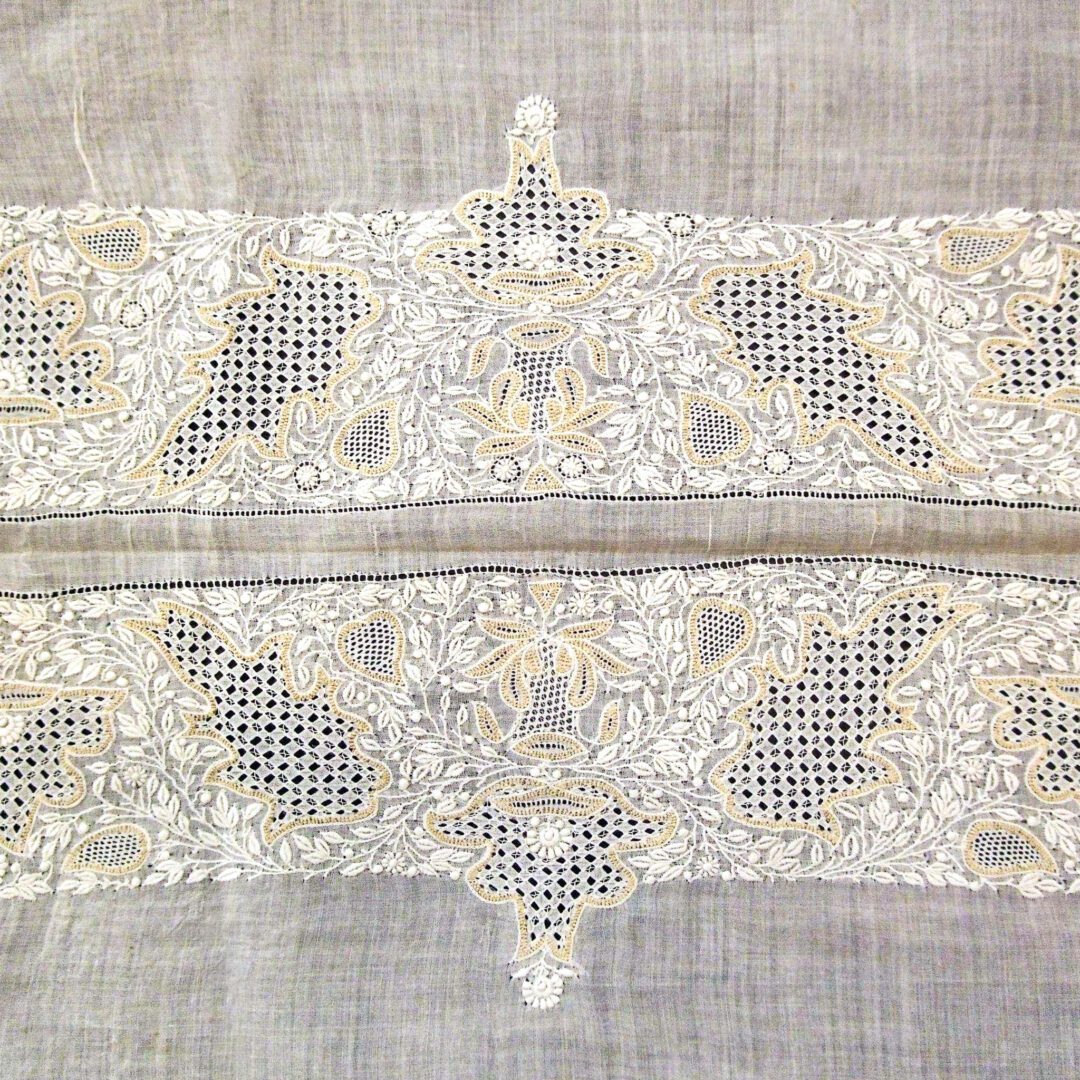
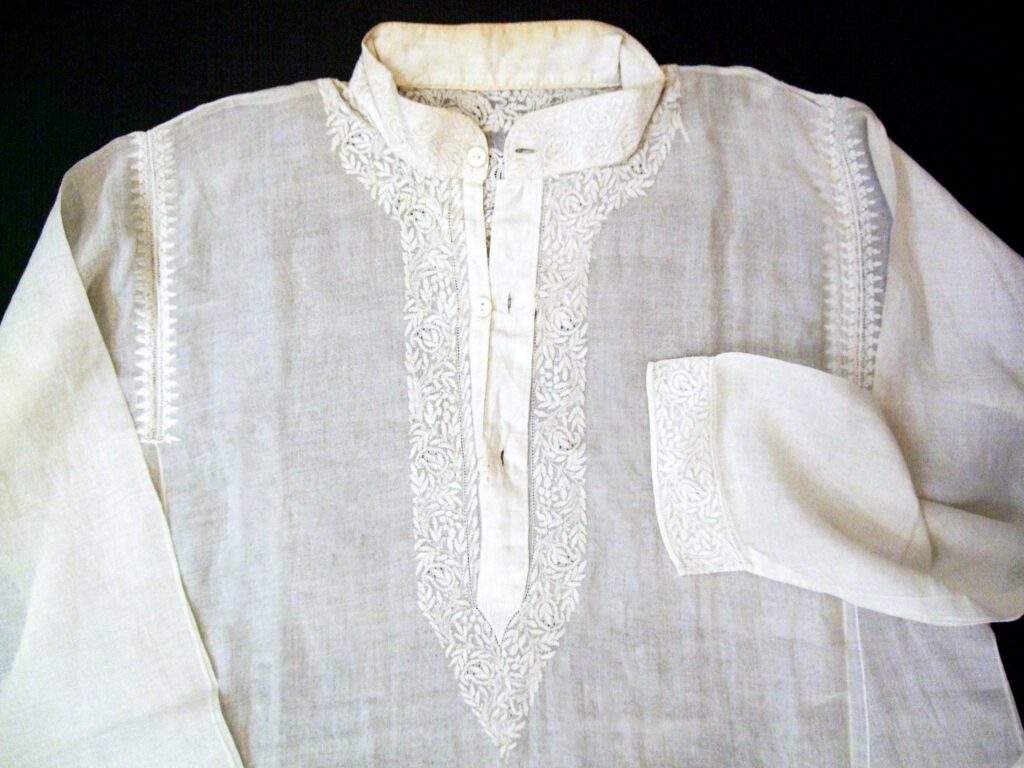
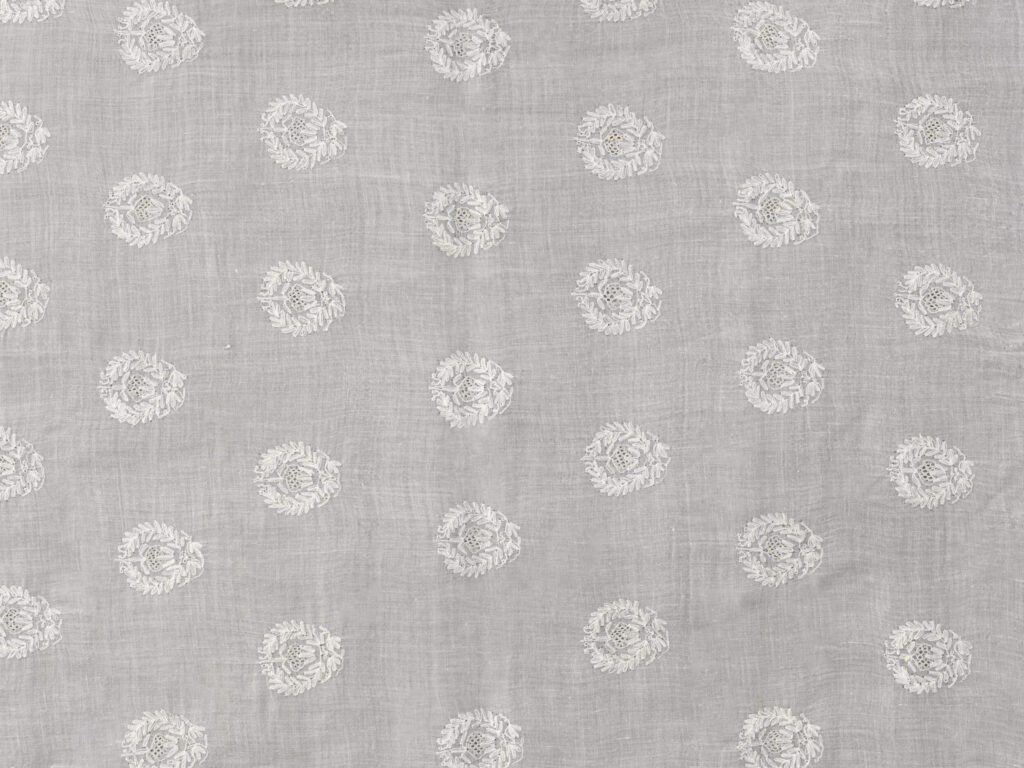
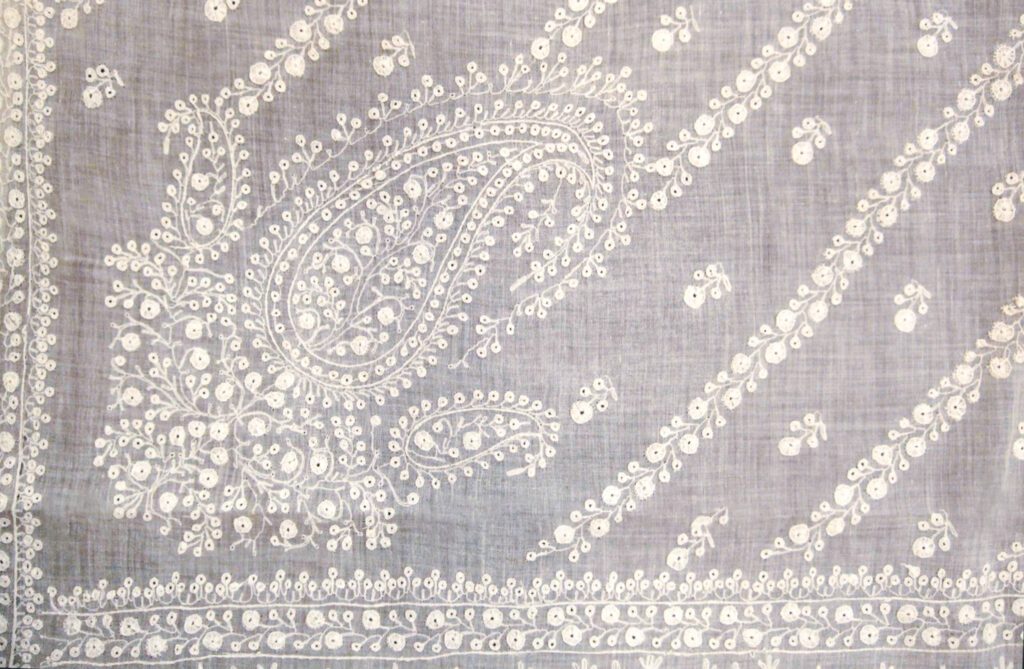
Chikankari is an intricate, traditional form of white-on-white embroidery from India, celebrated for its subtle elegance and delicate shadow work. Unlike the vibrant colors typically associated with Indian embroidery, Chikankari stands out with its refined white-on-white patterns, stitched on soft, lightweight, semi-translucent fabrics like fine muslins, cottons, and mulmul—a material similar to voile in weight but much softer.
Once patronized by Indian nobility and aristocracy, Chikankari has evolved into a celebrated craft that continues to flourish in contemporary India. Its timeless elegance and delicate artistry have captivated fabric lovers not only across India but also around the world, making it a cherished and widely admired form of hand embroidery. Though its exact origins are uncertain, with some attributing it to East Bengal, Lucknow in Uttar Pradesh, North India, is now recognized as the primary hub for this exquisite art form.
In this class, you will learn the foundational stitches of Chikankari embroidery and how to create your own simple design on fine, semi-translucent fabric. Ekta will provide a brief historical overview enriched with slides of both historical and contemporary Chikankari pieces. By the end of the class, you’ll be equipped with essential techniques to continue exploring and practicing this beautiful, meditative form of embroidery.
Date
Thursday, January 9th, 2025
Time
11am – 1:30 pm ET
Location
Zoom, a link will be sent to participants the day before class
Cost
$65 for the individual class, $350 for the series
*All sessions will be recorded. A link to the recording will be emailed to all those who register following the live session. This link is live for one month after the end of the series for you to watch at your convenience.
Class Materials:
- Fabric : Fine, semi-translucent, even weave fabrics are ideal. Eg lightweight cotton, linen muslin, voile, organdie, muslin or any translucent/sheer fabric suitable for hand embroidery (white works best to highlight the stitches). You may also use a fine silk or organza but remember these can be more challenging to embroider on compared to cotton as base fabric. Size 12”x12”
- Thread : White cotton floss, white no 8 perle or off-white for a subtle contrast
- Needles:
- Embroidery needles with a sharp point and an eye large enough to accommodate your thread.
- Tapestry needles (these have a blunt point).
- Embroidery hoop
- Water-soluble/ heat erasable fabric pen
- Snips
- Iron
- Needle Threader
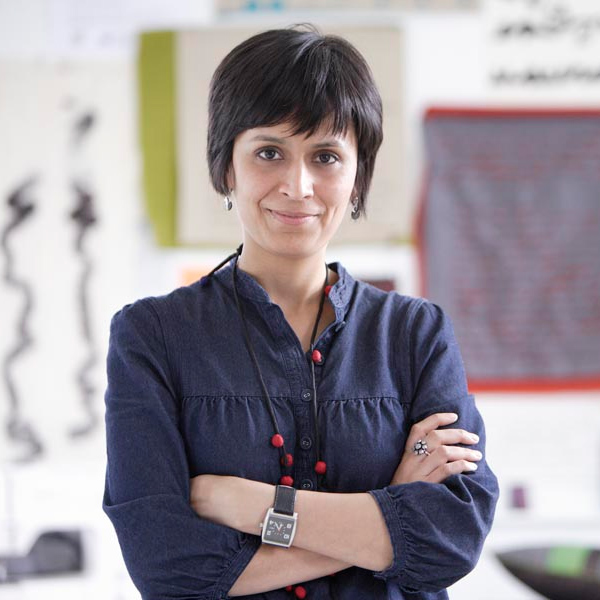
Our Teacher
Ekta Kaul is an award winning artist known for her narrative maps that explore place, history and belonging through stitch and abstract painting. Her works are held in prominent public collections including at the Museum of London, Crafts Council, the Gunnersbury Museum in the UK. Ekta’s work has been featured on BBC Radio 4, publications like Vogue, Living Etc, Financial Times, Selvedge and Embroidery Magazine. Ekta grew up in India imbibing the rich textile heritage of the country and trained at India’s pre-eminent design school the National Institute of Design, Ahmedabad before moving to the UK to pursue her Master degree in Textiles as an awardee of Charles Wallace Scholarship and a British Council Scholarship. Over the last 18 years Ekta has established a creative practice that occupies overlapping spheres of artistic expression, scholarship and creative mentoring.
Her book ‘Kantha : Sustainable Textiles and Mindful Making’ was published by Bloomsbury UK in 2024.
www.ektakaul.com
Insta @ekta_kaul
www.youtube.com/@ektakaulart
